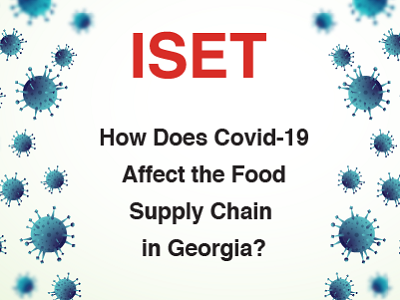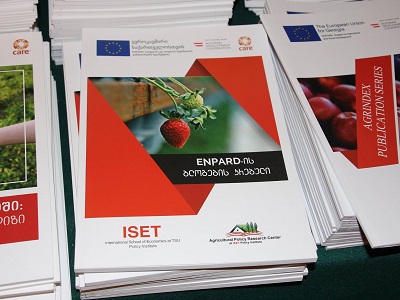- Details
The lockdowns and trade restrictions related to the COVID-19 pandemic resulted in shortages of some major food commodities on international and local markets. In this policy brief, we discuss and analyze Georgia's response to the crisis in terms of food security and agricultural policy. Furthermore, we provide recommendations to ensure fewer disruptions in food supply chains and low volatility in food prices.
COVID-19 has posed significant risks to the food security of many countries including Georgia. Lockdowns and pandemic-related trade restrictions across the world have resulted in shortages of some major food commodities on international and local markets (e.g. sunflower oil shortage in Russia). As of October 16, 2020, according to a World Bank report, 62 jurisdictions have executed a total of 62 export controls in food commodities since the beginning of 2020.
- Details
Images of empty shelves in grocery stores worldwide have emerged amid the COVID-19 pandemic. So far, this has had little to do with an actual shortage of food products but rather has reflected the behavior of panicked consumers who are hoarding food.
While some earlier publications (e.g., IFPRI, March 10, 2020) perceived no imminent threats from the pandemic to global food security, more recent articles (e.g., IFPRI, March 20, 2020; FAO, March 26, 2020; FAO, The Guardian) called attention to proper policy responses to reduce the potential negative impacts of COVID-19 on local and global food systems and food security. Potential disturbances in worldwide food trade are of increasing concern (IFPRI, March 27, 2020), as several notifications of food trade restrictions (e.g. Kazakhstan and Thailand) have already been registered by the WTO.
- Details
With EU financial and technical assistance, as well as training and education on cooperation and agribusiness, small farmers in Georgia are benefitting from economies of scale, cutting their production costs and increasing efficiency.
On November 30 and December 1 2017 in Tbilisi, at a joint closure event the four partners implementing the EU’s ENPARD’s small farmers’ cooperation component – Care, Mercy Corps, Oxfam and People in Need – presented the results of their four-year work in support of EU-funded agricultural cooperatives in Georgia.
The two-day event included the Policy and Strategy Panel Discussions on the first day, and Plenary Presentations and Cooperatives Gallery on the second.













